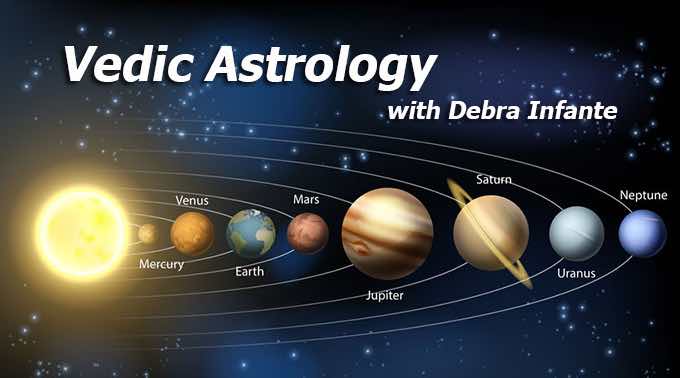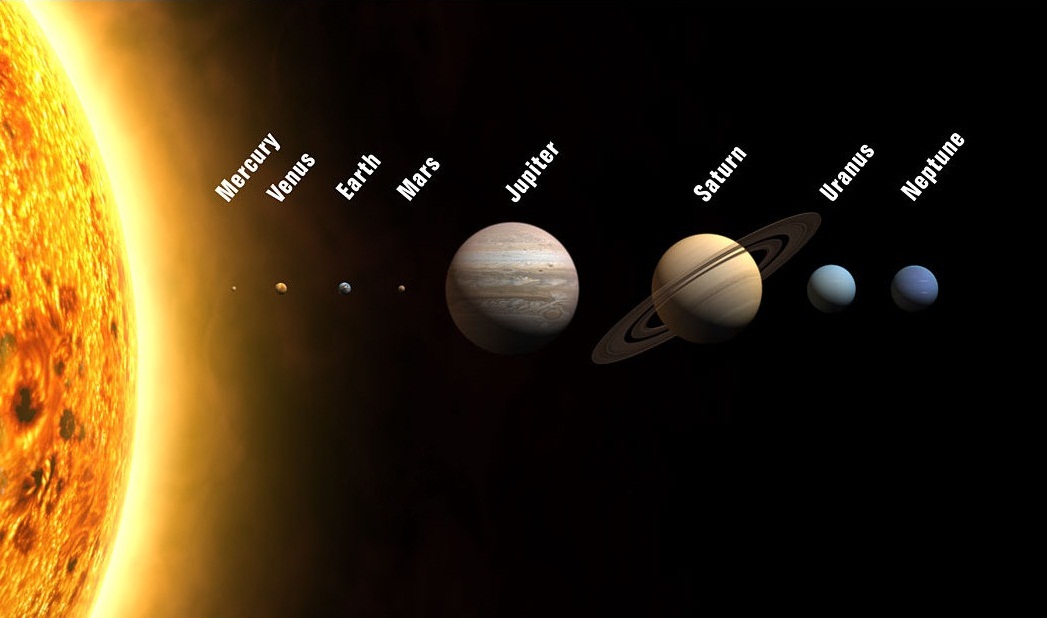Vedic Astrology for February: Aquarian Influences and Another Powerful Eclipse
Ready for another big eclipse in February? Read this!

This month ushers in the second eclipse of the winter season, with a solar eclipse happening on February 15, 2018.
It’s an Aquarian month, with three planets transiting it, plus the mid-month eclipse will take place in the Water Bearer’s sign.
The nodes of the Moon, Rahu and Ketu, are stationing (not moving) all month, which means we will all need to find positive ways to release pressures.
Venus, the Sun, and Mercury all shift to the sign of Aquarius this month. First Venus moves to Aquarius on February 6, followed by the entry of the Sun on February 12, and finally Mercury transits the sign beginning February 14. Aquarius is a fixed air sign that is known for progressive and alternative interests, and carries a deep desire for community and involvement with social causes.

Saturn rules the sign of Aquarius, so be mindful of overworking or becoming too self-critical at this time. Pace yourself and find nurturing activities to do. With the energies of Aquarius more dominant this month, you may experience a tendency to be more in your head than your heart. It might be helpful this month to seek out more meaningful and intimate connections with others.
All three planets, the Sun, Venus, and Mercury, will be aspected by Saturn, Mars, and Jupiter this month.
The Saturn aspect provides a more serious tone which may result in more loyalty and greater commitment in our lives. The Mars aspect gives passion, but with Saturn in the mix, we can experience some setbacks if we move ahead too quickly. Jupiter, the great benefic, aspects these three planets too, which will help us all to move through any issues that surface with more understanding, grace, and generosity.
The big event this month is the solar eclipse that occurs on February 15, 2018 at 2:05 PM (MST) at 3 degrees Aquarius in the nakshatra of Dhanishta.
Photo by Bryan Minear / Unsplash
This is the second eclipse of a pair, as the first eclipse occurred on January 31, 2018. Mercury will be very close to this eclipse, within 2 degrees, and it will also be combust the Sun, so Mercury’s integrity is challenged. Be extra careful and precise with all of your communications with others around this eclipse.
Dhanishta means “the wealthiest,” and indicates a theme of reevaluating what wealth and prosperity means to each of us. Material wealth may be easier to understand or attain, but how do we invest and generate the spiritual wealth in our lives? True wealth will not lose value, and is generated by genuine kindness, forgiveness, charitable actions, and heartfelt compassion. Practicing acceptance of whatever arises inside our hearts with no judgment is a helpful and healing response.
Dhanishta is an intense and powerful nakshatra, especially if we work with high ideals for the goodness of all. However, we may also see the shadow of Dhanishta rise, which is expressed as egotism, a sense of superiority, or deceptive activities. Use the inner courage of Dhanishta to work for the greater good, despite any challenges you may face.
Remember that eclipses are not to be feared, but are times of high spiritual energy. Make the most of them by engaging in mindful activities like inner reflection, meditation, and yoga.
Eclipses are windows of opportunity that can bring unresolved issues or underlying motivations to the surface in order to be understood and healed so we can move forward. They can bring significant, positive change in our lives over time.
Photo by Tyler van der Hoeven / Unsplash
Currently the nodes of the Moon, Rahu and Ketu, have been stationing at 20 degrees in the signs of Cancer and Capricorn, since January 13, 2018 and will remain so until March 18, 2018. Occasionally, when the nodes stay put on a degree for an unusually long period of time, unexpected or significant events can surface. If you have planets close to 20 degrees Cancer or Capricorn, then you might feel the impact of this long nodal transit. It’s best to be non-reactive, let go of excessive desires, and be kind to yourself. Try to stay focused and centered. Use your energies constructively, possibly by helping others in need, being more creative, or even taking a well-deserved rest, which can help transmute any build up of excessive pressures and help you to feel mentally balanced and at peace.
Debra Infante is a practicing Vedic astrologer and teacher. She began her studies of Vedic astrology in 1995, and was certified by The American College of Vedic Astrology as an approved teacher (Level I) in September 1999. She has been teaching Vedic astrology to the students in the yoga teacher trainings at 7 Centers Yoga in Sedona, AZ since 2002. Debra can be reached at (928) 639-0623 for astrological consultations by phone or in person. You can also find her here.
source consciouslifenews


